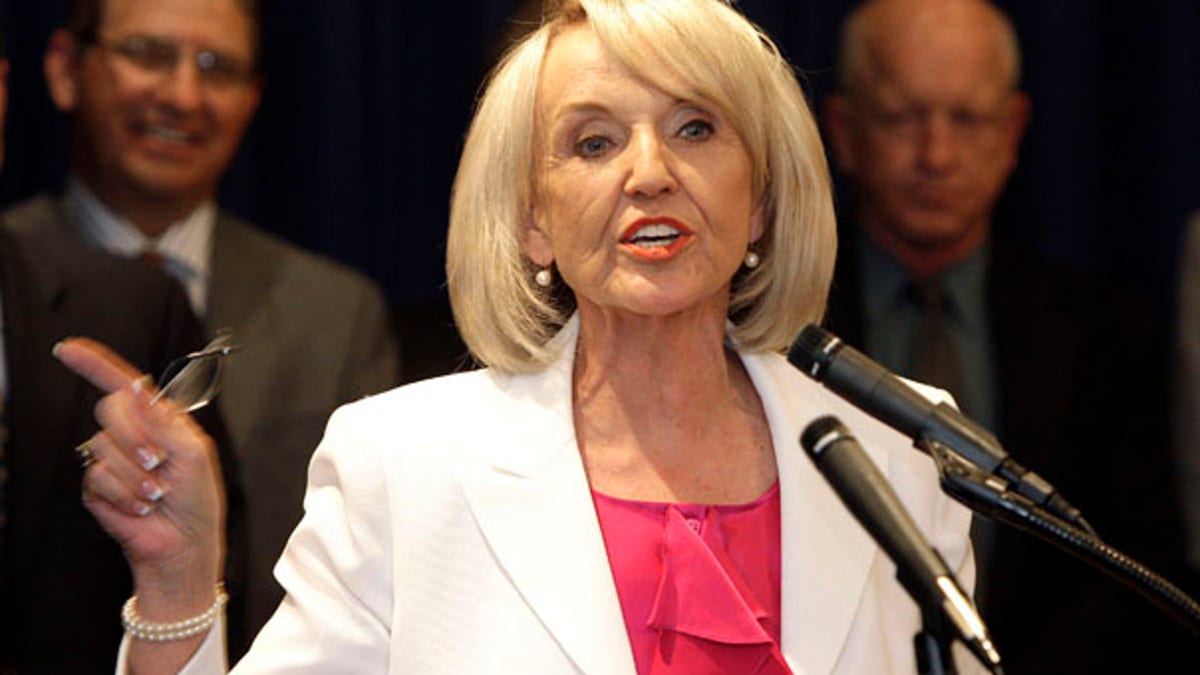
Arizona Gov. Jan Brewer, seen in this 2010 file photo, has vetoed a bill that would have allowed guns on public college campuses. (AP)
Arizona is returning to its gold rush roots with a bill that would make precious metals legal currency.
The GOP-led Senate gave final approval Tuesday to the bill that could make Arizona the second state in the nation to recognize gold and silver as legal tender. If signed into law by Gov. Jan Brewer, the measure would take effect in 2014.
The state Department of Revenue opposed the measure. It passed in the House only after an amendment was added to exempt the department from having to accept gold or silver as tax payments.
The measure reflects a growing distrust of government-backed money amid the declining value of the dollar, according to proponents. Republican Rep. David Livingston of Peoria, a financial adviser who ushered the legislation through the House, said his clients were eager to tap into their gold and silver reserves.
But Democrats, who voted against the measure in the Senate and House, said it sends a false message to constituents that gold and silver are safer than traditional currency.
"This is too extreme," Democratic Sen. Steve Gallardo of Phoenix said. "We don't need it."
Democratic Sen. Steve Farley of Tucson said the measure is unnecessary and would create long lines at businesses as store clerks inspect and weigh the gold and silver. The measure would allow the use of precious metals as money only when businesses agree to take them.
"Businesses are not clamoring for this, to say the least," Farley said. "This is basically growing the size and scope of government to create an entirely new currency system."
Farley noted that the price of gold saw a significant drop in early April, its biggest one-day plunge since 1983. He said allowing gold and silver as legal payment at grocery stores and other businesses would prove too unpredictable.
"Anybody who thinks gold or silver is a safe place to put your money had better think again," he said.
The Senate had previously passed Senate Bill 1439, but it was sent back for final approval after the House amendment passed.
Utah became the first state to allow gold or silver payments in 2011. Lawmakers in Minnesota, North Carolina, Idaho, South Carolina, Colorado and other states have debated copycat laws in recent years. The Maine Senate and House recently rejected a similar measure.
Gold-backed money fell out of favor during World War I because the U.S. and many other countries needed to print more cash to pay for the war. President Richard Nixon formally abandoned the gold standard in 1971.




